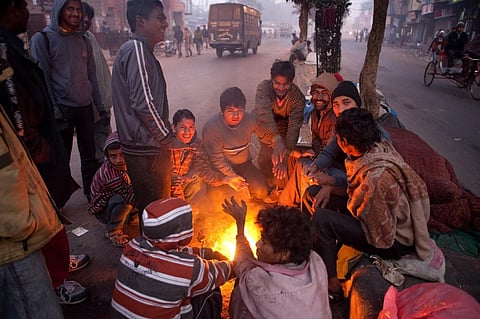
- HOMEGROWN WORLD
- #HGCREATORS
- #HGEXPLORE
- #HGVOICES
- #HGSHOP
- CAREERS
- ABOUT US
- CONTACT US

Every year we hear someone or the other saying “This is the coldest winter ever.” While almost everytime a statement like that is a hyperbole, this year the cold has indeed come down in all sorts of superlatives in several regions across India. The Meteorological Department of India stated that we haven’t had cold like this for a decade.
On 11th January 2023, Mahabaleshwar in Maharashtra recorded its lowest temperature ever at 0°C. The residents of Mumbai are astonished to see the mercury dip to as low as 13.2°C. Delhi was down to 5.8°C, two degrees below normal, while further up north, Pahalgam in Kashmir is trembling at record low temperatures of -11.6°C. While we have been hearing about the unbearable cold in Delhi this year, it is not just Delhi but several other places that have been bearing the brunt of the cold wave. Residents of Nowgaon in Madhya Pradesh, Chintapalle in Alluri Sitarama Raju district of Andhra Pradesh and Rajasthan’s Mount Abu witnessed layers of frost and snow accumulating on leaves and grassland after the mercury dipped below zero degrees celsius or registered the minimum this winter season.
But what exactly is a cold wave and how is it being caused? A cold wave, cold spell, cold snap, or Arctic snap, is a cooling of the air, caused by a number of factors such as pressure differences, cloud cover, La Niña and non-seasonal rainfall. While these are natural factors and almost impossible for us to control, there are some precautions that we can take to battle out this harsh winter and avoid frostbite or worse, hypothermia. We should try to stay indoors and keep ourselves warm with layers of woolen. The woolens must be light and comfortable. If you get wet, dry yourself immediately. You must eat enough nutritious food to retain the body’s core temperature. One must also be very careful while driving or walking on the road amidst the dense fog. If you are using a heater, ensure proper ventilation to avoid inhaling harmful fumes.
You must have noticed that all these precautionary measures mentioned among involves having a certain amount of class privilege. The ones who are most brutally afflicted with this biting cold are individuals without the means to afford adequete shelter. The first step to helping them, is to reach out to the homeless people in your locality. Ask them what they need and you can donate warm clothes, makeshift beds, blankets, food and anything else that you can and which will prove useful. The combined result will be massive if we all start with small efforts. If possible, we can reach out to charity organizations who cater to the homeless. Additionally we can mobilise some like minded minds and organize donation drives.
Everything is temporary and so is this cold. Stay warm, stay safe and try helping the less privileged as best as you can.
